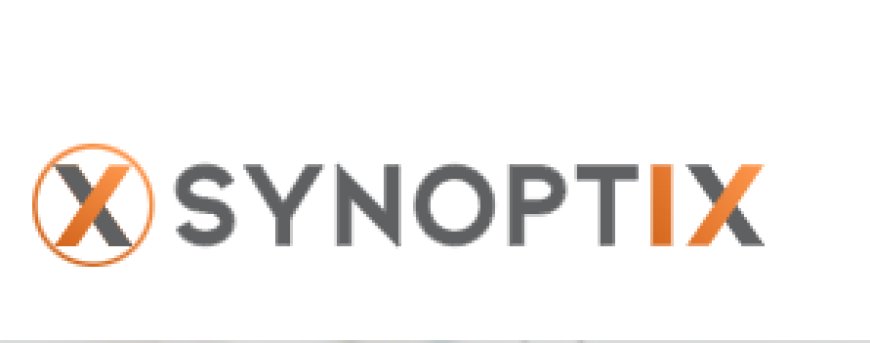Streamlining Financial Management with Corporate Budgeting Software
Explore how corporate budgeting software enhances financial management, forecasting, and ERP financial reporting for businesses.

In today’s dynamic business landscape, efficient financial management is crucial for the success and growth of any organization. One of the most effective tools in achieving this is corporate budgeting software. This specialized software not only simplifies the budgeting process but also enhances financial planning, forecasting, and reporting, providing businesses with a comprehensive view of their financial health.
The Importance of Corporate Budgeting Software
Corporate budgeting software is designed to help businesses manage their financial resources effectively. It integrates various financial functions, including budgeting, forecasting, and reporting, into a single platform. This integration is vital for maintaining accurate financial data, which is essential for making informed business decisions.
Corporate budgeting software serves as a central hub for all financial data, enabling businesses to track expenses, manage budgets, and forecast future financial performance. By automating these processes, the software reduces the risk of human error, ensures data accuracy, and saves valuable time.
Key Features of Business Budgeting Software
When selecting business budgeting software, it is essential to consider the features that align with your organization's needs. Here are some of the key features that can enhance your financial management capabilities:
Comprehensive Budgeting Tools: Effective budgeting software should offer tools for creating detailed budgets that include various categories of income and expenses. This helps businesses allocate resources efficiently and avoid overspending.
Forecasting and Scenario Planning: Advanced forecasting capabilities allow businesses to predict future financial outcomes based on different scenarios. This feature is crucial for strategic planning and risk management.
Integration with ERP Systems: Many businesses use Enterprise Resource Planning (ERP) systems for overall business management. Integrating corporate budgeting software with ERP systems can streamline financial reporting and ensure consistency across all business functions.
Real-time Financial Reporting: Access to real-time financial data is essential for making timely decisions. Business budgeting software should provide comprehensive financial reports, including profit and loss statements, cash flow analysis, and balance sheets.
User-friendly Interface: A user-friendly interface makes it easier for non-financial staff to use the software effectively. This accessibility is important for ensuring that all relevant stakeholders can access and understand financial information.
Benefits of Using ERP Financial Reporting in Budgeting Software
Integrating ERP financial reporting capabilities with corporate budgeting software offers several benefits:
Enhanced Data Accuracy: With ERP integration, data is automatically updated across all systems, reducing the risk of discrepancies and ensuring that financial reports are based on the most current data.
Improved Financial Visibility: ERP financial reporting provides a holistic view of the company's financial status. This visibility is crucial for identifying trends, spotting potential issues, and making proactive decisions.
Efficient Resource Allocation: By providing detailed insights into financial performance, ERP-integrated budgeting software helps businesses allocate resources more effectively, ensuring that funds are directed toward the most profitable areas.
Streamlined Compliance: Accurate and timely financial reporting is essential for compliance with regulatory requirements. ERP systems can automate compliance-related tasks, reducing the burden on financial teams and minimizing the risk of non-compliance.
Choosing the Right Corporate Budgeting Software
Selecting the right corporate budgeting software involves evaluating your organization’s specific needs and the software's capabilities. Here are some factors to consider:
Scalability: Choose software that can grow with your business. As your organization expands, your budgeting software should be able to handle increased data volume and complexity.
Customization: Look for software that allows customization to fit your business processes. This flexibility ensures that the software can adapt to your specific budgeting and reporting requirements.
Integration Capabilities: Ensure that the software can integrate seamlessly with your existing ERP systems and other business tools. This integration is crucial for maintaining data consistency and streamlining workflows.
Cost-effectiveness: Consider the total cost of ownership, including licensing fees, implementation costs, and ongoing maintenance. Choose a solution that provides value for money and aligns with your budget.
Vendor Support and Training: Reliable vendor support and training are essential for the successful implementation and use of the software. Ensure that the vendor offers comprehensive training and responsive customer support.
Conclusion
In conclusion, corporate budgeting software is an indispensable tool for modern businesses seeking to optimize their financial management processes. With features such as detailed budgeting tools, advanced forecasting, ERP financial reporting, and real-time data access, this software empowers businesses to make informed decisions, allocate resources efficiently, and maintain financial stability.
Investing in the right business budgeting software can lead to significant improvements in financial accuracy, operational efficiency, and strategic planning. As businesses continue to navigate an ever-changing economic landscape, the role of corporate budgeting software in ensuring financial success cannot be overstated.
What's Your Reaction?























